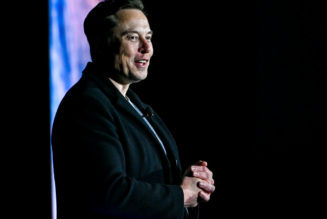
With his 2,141 SoundCloud followers, veteran U.K. psychedelic-music producer Darren Sangita didn’t exactly wound Spotify when he pulled his music from the streaming service last month. “I’m a zed-list music celebrity,” he says. But he couldn’t support a company whose founder, Daniel Ek, invested more than $114 million in Helsing, a European security startup that manufactures artificial-intelligence software to “keep liberal democracies from harm.”
“The circumstantial evidence points to a massive investment in military/AI tech,” says Sangita, who runs indie label Sangita Sounds. “I was just enormously disappointed. Are there not any other alternatives that Mr. Ek could have possibly thought about investing in to make the world a more beautiful and perhaps a safer place to live?”
The early-November investment from Ek’s year-and-a-half-old company, Prima Materia, sparked a “boycott Spotify” social-media movement that has gradually advanced beyond the Z-list. Skee Mask, a German techno producer and DJ, discouraged his 16,900 Twitter followers earlier this month from giving their “last penny to such a wealthy business that obviously prefers the development of warfare instead of actual progression in the music business.”
The investment in Helsing, whose executives told the Financial Times they specialize in using infrared, sonar and radio frequencies from military-vehicle sensors to help soldiers detect enemy drones and hostile troops, adds to Spotify’s history of irritating artists on its platform. Although all three major labels have a stake in the company, and audio streaming grew 12.6% in 2021, according to MRC Data, artists from Paul McCartney to David Crosby have criticized the platform for its low royalty payments. “It’s such a small percentage,” McCartney said last year.
As with YouTube and Apple’s iTunes Store in previous eras, Spotify has become a distributor that artists can’t afford to bypass, given its 381 million worldwide users, including 172 million paid subscribers. But for Sameer Gupta, a Brooklyn, N.Y., percussionist who combines jazz and Indian tabla music, Ek’s Helsing investment was the “straw that broke the camel’s back,” leading him to pull his music from Spotify to focus on Bandcamp, where he posts 15 albums. “All that money that’s being taken from artists and musicians is being funneled to this,” he says, referring to Helsing. “I don’t know a single musician who would ever say, ‘That’s the function of music.’”
Artists have rarely boycotted distributors of their own music: In 2014, Taylor Swift briefly pulled her catalog from Spotify; for years, stars from Garth Brooks to Kid Rock refused to license their songs to the iTunes Store; and Prince famously would not authorize YouTube streaming. More recently, Spotify has recently become a flashpoint for artists annoyed with the streaming economy. Last April, the Union of Musicians and Allied Workers picketed the Swedish company’s worldwide offices. “This affects everybody, and that’s something a lot of musicians don’t know because they’re not paying attention to Spotify,” singer-songwriter Julia Holter told the Los Angeles Times.
Reps for Spotify and Prima Materia wouldn’t comment. According to the investment company’s website, it has invested in Northvolt, a battery-cell company aiming for an 80% lower carbon footprint in the next eight years, and H2 Green Steel, a low-carbon-emission steel-production tech company. The company is “working with scientists, engineers, inventors and investors to build some of the deep technology necessary to make a significant positive impact,” its website says.
Spotify is not the first in the music business to generate backlash for working with military entities — directly or indirectly. In 2015, Apple, which created the iTunes Store, the iPod and Apple Music, partnered with the Pentagon to produce a wearable product for soldiers called stretchable electronics. In the late 2000s, Mariah Carey, Beyonce, Usher and others received as much as $1 million apiece for private concerts for members of the late Libyan dictator Mummar el-Qaddafi’s family.
Anita Ramasastry, a University of Washington law professor who teaches a course on business, social responsibility and human rights, wouldn’t comment on Spotify, Helsing or Prima Materia, but she emphasized that a company should have a “human rights policy” to guide its investments. “A company like Spotify should be using its leverage to try to prevent harm,” she says. “It’s not just about profit. It’s about ‘what is the end result of the company they invested in?’”
[flexi-common-toolbar] [flexi-form class=”flexi_form_style” title=”Submit to Flexi” name=”my_form” ajax=”true”][flexi-form-tag type=”post_title” class=”fl-input” title=”Title” value=”” required=”true”][flexi-form-tag type=”category” title=”Select category”][flexi-form-tag type=”tag” title=”Insert tag”][flexi-form-tag type=”article” class=”fl-textarea” title=”Description” ][flexi-form-tag type=”file” title=”Select file” required=”true”][flexi-form-tag type=”submit” name=”submit” value=”Submit Now”] [/flexi-form]










Tagged: business, Daniel Ek, entertainment blog, Helsing, music blog, Prima Materia, Spotify, Streaming